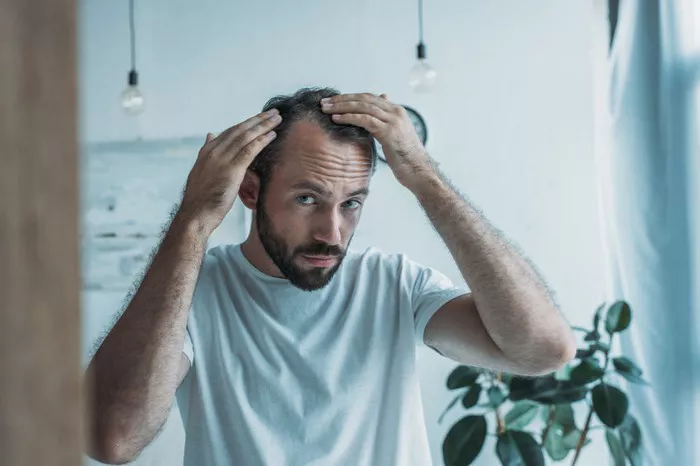Coffee is one of the most popular beverages worldwide, cherished for its rich flavor and stimulating effects. However, amidst the myriad of health claims associated with coffee consumption, concerns about its potential link to hair loss have emerged. In this article, we delve into the question: Does drinking black coffee cause hair loss?
Understanding the Relationship Between Coffee and Hair Loss:
Impact of Caffeine: Caffeine, a natural stimulant found in coffee, has been purported to have both positive and negative effects on hair health. On one hand, caffeine is believed to promote blood circulation to the scalp, which can stimulate hair follicles and encourage growth. Conversely, excessive consumption of caffeine may disrupt hormone levels and contribute to hair loss.
Role of Hormones: Hormonal imbalances can play a significant role in hair loss, and caffeine has been implicated in affecting hormone levels. Some studies suggest that high caffeine intake may lead to increased cortisol levels, which can, in turn, disrupt the hair growth cycle and contribute to hair thinning or shedding.
Effects of Oxidative Stress: Coffee contains antioxidants, which are beneficial for overall health and may help combat oxidative stress. However, excessive oxidative stress has been linked to hair loss, raising concerns about the potential negative impact of consuming large quantities of coffee.
Exploring the Evidence:
Research on Caffeine and Hair Growth: Several studies have investigated the effects of caffeine on hair growth, with some demonstrating its potential to stimulate hair follicles and prolong the anagen (growth) phase of the hair cycle. Topical caffeine formulations have even been developed as potential treatments for hair loss.
Role of Genetics and Lifestyle: While caffeine intake may play a role in hair health, it is just one factor among many. Genetics, diet, stress levels, and overall lifestyle also influence the likelihood of experiencing hair loss. It’s essential to consider these factors holistically when assessing the impact of coffee consumption on hair health.
Limited Direct Evidence: Despite anecdotal claims linking coffee consumption to hair loss, there is limited direct evidence to support this association. Most studies exploring the effects of caffeine on hair growth have been conducted using topical formulations rather than oral consumption of coffee.
Factors to Consider:
Moderation: As with many aspects of diet and lifestyle, moderation is key when it comes to coffee consumption. While enjoying a cup of black coffee in the morning is unlikely to cause hair loss, excessive intake may have unintended consequences on overall health, including hair health.
Individual Sensitivity: Individuals may vary in their sensitivity to caffeine and its effects on hormone levels. Some people may tolerate coffee well and experience no adverse effects on their hair, while others may notice changes in hair health with increased consumption.
Balanced Diet: A balanced diet rich in essential nutrients is crucial for maintaining healthy hair. Rather than focusing solely on the effects of coffee, it’s important to consider overall dietary habits and ensure adequate intake of vitamins, minerals, and proteins that support hair growth.
Conclusion:
In conclusion, the relationship between drinking black coffee and hair loss is complex and multifaceted. While caffeine has been shown to have potential benefits for hair growth, excessive consumption may contribute to hormonal imbalances and oxidative stress, which can negatively impact hair health. However, there is limited direct evidence linking moderate coffee consumption to hair loss, and individual responses may vary. As with any dietary habit, moderation is key, and it’s essential to maintain a balanced diet and lifestyle to support overall health and hair growth. Rather than demonizing or glorifying coffee, it’s important to approach consumption mindfully and consider its potential effects in the context of individual health and wellness goals. Consulting with a healthcare provider can provide personalized guidance on diet, lifestyle, and hair care practices to promote optimal hair health and minimize the risk of hair loss.
When Does Hairline Start Receding

